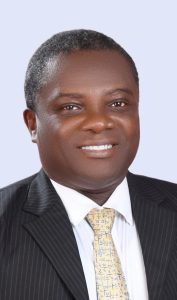When the Rivers State University of Science and Technology was established in 1980, it inherited the assets and liabilities of the College, and the Department commenced the Bachelor of Technology (B. Tech) degree program in Marine Engineering. It was the first and only University in Nigeria and, indeed, the entire West African sub-region that offered Marine Engineering programs at Bachelor’s and Post graduate degree levels, although other Universities are currently running Marine Engineering programs at the Bachelor’s degree level. Until 1980, the Department only offered programs at the Ordinary National Diploma and Higher National Diploma levels. The first Acting Head/Coordinator of the Department was Mr. Sauer.
The Bachelor of Technology degree programme has been designed to produce Marine Engineers that can be readily employed in the various areas of the maritime Industry as well as providing a platform for graduates to undertake Postgraduate studies/research in Ship power plants and engines/machinery, Naval Architecture, Offshore Engineering, Subsea Engineering, and other related disciplines. The Department provides a highly functional environment for students to acquire sound and extensive knowledge in the theory and practice of ship design and construction, ship power plants and equipment design and repairs, shipyard and large components/units/systems fabrication processes, offshore systems/structures design, construction and operations, and quality and safety assurance.
Prior to 1986, most of the Senior academic staff members of the Department were recruited from Poland based on a bilateral agreement between the University and the Gdansk University of Technology (GUT) in Poland. Based on this agreement, Prof. J. Stalinski (who was formerly Rector of GUT) became the first Polish staff and Head of Marine Engineering Department. Other eminent academics of the Department that came from GUT include Prof. Urbanski, Prof. Fracowiak, Prof. Welnicki, Prof. Thierry, Mr. Nierowski, Mr. Kaluza, Dr. Lemski and Dr. Jettmar. These academics contributed immensely to the development of the Department and were responsible for the planning and equipment of academic facilities and laboratories to International Standards.
SUMMARY OF HEADSHIP OF THE DEPARTMENT
SUMMARY OF HEADSHIP OF THE DEPARTMENT
|
|
NAME OF STAFF
|
ACADEMIC PERIOD(S)/SESSION(S)
|
|
|
Engr. Prof. KDH Bob-Manuel
|
1987-1990; 1995-1999; 2005-2008
|
|
|
Engr. Dr. I. E. Douglas
|
1991-1995; 1999-2004; 2010-2012; 2015-2017
|
|
|
Engr. Prof. E. A. Ogbonnaya
|
2008-2010
|
|
|
Engr. Dr. I. Olaghadien
|
2012-2015
|
|
|
Engr. Dr. E. Akandu
|
2017-2018
|
|
|
Engr. Prof. I. Fubara-Manuel
|
2018-2021
|
|
|
Engr. Dr. C. U. Orji
|
Feb. – Nov. 2021
|
|
|
Engr. K. Theophilus-Johnson
|
Nov. 2021 till date
|

